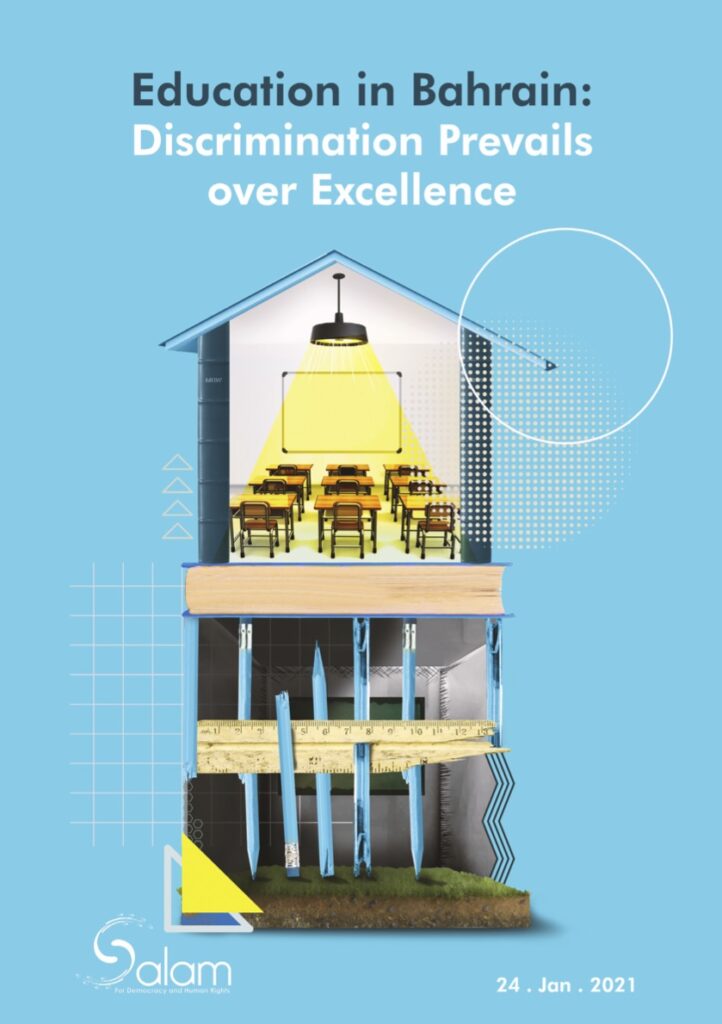On the occasion of the International Day of Education, which occurs yearly on the 24th of January, Ebrahim Sarhan, the legal advisor for Salam for Democracy and Human Rights, stated that “Education in Bahrain is below standards and is not in porportion to the state’s resources and capabilities. The quality of education is still subject to the systematic discrimination that the Ministry of Education conducts and practices on public school, especially in areas inhabited by Shiite citizens. In addition, the Islamic education curriculum only teaches the four Islamic schools, excluding the Twelver doctrine, which is adhered to and followed by the majority of citizens in Bahrain. Likewise, prisoners are deprived of their right to education and to complete their academic learningat all levels of study, despite strenuous calls to enable their enjoyment of this constitutional right.”
It on this occasion that Salam for Democracy and Human Rights is launching its report, titled “Bahrain: Education in Bahrain: Discrimination Prevails over Excellence”, which sheds light on the reality of education and systematic discrimination in the state. ‘Discrimination Prevails over Excellence’ was chosen based on the image that the Ministry of Education portrays of Bahrain’s education, that of ‘excellence’. Through Salam’s observations, however, it has been concluded that the reality of education in the state is that is founded on serious systematic ‘discrimination’. The Ministry of Education lacks proper conceptualization and application of transparency, as well as proper criteria, by which it distributes its scholarships and education grants. Additionally, the Ministry takes no notice of the law binding it to act in coordination with prison administrations to enable a prisoner to continue their education and studies.
Therefore, Salam for Democracy and Human Rights urges the government of Bahrain to respect the right of education and the Convention against Discrimination in Education. Furthermore, it asks of the government to take appropriate measures to combat discrimination, to act in a spirit of transparency and equality in the distribution of scholarships and grants, and to abandon subjective interviews that are far from defining one’s competence. Finally, and most importantly, Salam calls on the government to grant prisoners their full and comprehensive right of education in all levels of study.
January 24, 2021
Read & Download The Report

 العربية
العربية Français
Français Deutsch
Deutsch